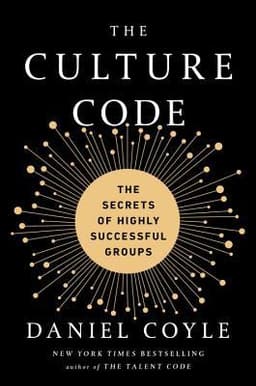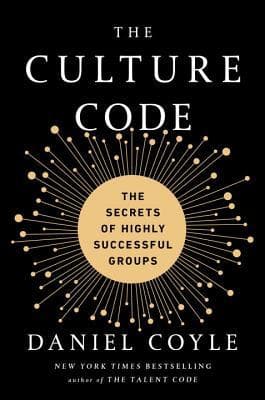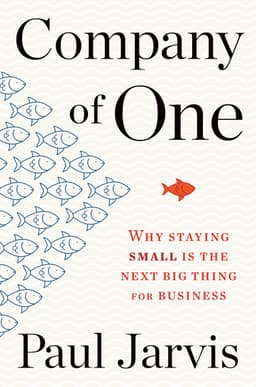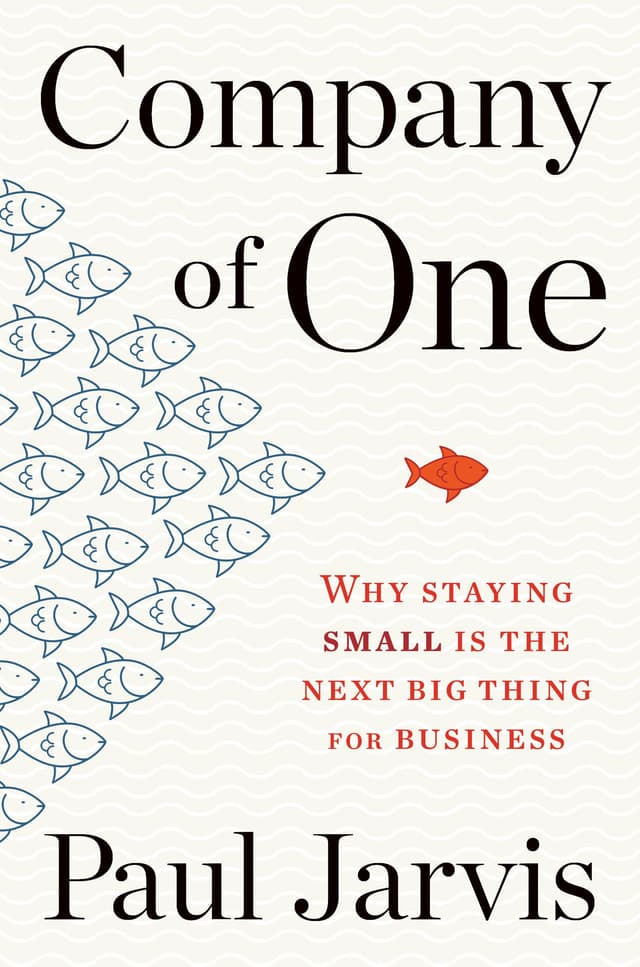
No Rules Rules Book Summary
Netflix and the Culture of Reinvention
Book by Reed Hastings, Erin Meyer
Summary
Unlock the secrets behind Netflix's phenomenal success with 'No Rules Rules'. Discover how a culture built on talent density, radical candor, and removing controls fuels innovation, speed, and adaptability in the face of constant change.
Sign in to rate
Average Rating: 4
Why Netflix Succeeded Where Blockbuster Failed
In 2000, Blockbuster was a $6 billion giant, while Netflix was a tiny, loss-making startup. Blockbuster declined Netflix's $50 million acquisition offer. By 2010, Blockbuster was bankrupt, unable to adapt to streaming, while Netflix thrived, producing award-winning content globally.
The key difference wasn't resources or initial vision; Blockbuster had both. Netflix succeeded because of its unique culture: valuing people over process, emphasizing innovation over efficiency, and having very few controls. This focus on talent density and leading with context, not control, allowed Netflix to continually adapt and grow.
Section: 1, Chapter: 0
The Foundation: Freedom And Responsibility (F&R)
Netflix aimed to foster flexibility and innovation, avoiding the stifling rules common in growing companies. The core idea evolved into 'Freedom and Responsibility'. Instead of control processes, Netflix focused on:
- Building up talent density: Hire and retain only high performers, removing the need for rules designed to manage mediocrity.
- Increasing candor: Encourage constant, honest feedback loops so employees hold each other accountable and improve performance.
- Reducing controls: With high talent and candor, remove policies (vacation, expenses) and approvals, trusting employees to act responsibly.
Section: 1, Chapter: 0
The Power Of Talent Density
A crisis in 2001 forced Netflix to lay off a third of its staff, keeping only the top performers. Surprisingly, the remaining smaller team achieved more, faster, and with higher morale. This revealed the power of talent density.
A company filled solely with high performers creates an environment where everyone is motivated, learns more from colleagues, and achieves more. One or two adequate performers can drain energy, lower discussion quality, reduce efficiency, and signal that mediocrity is acceptable, ultimately bringing down the entire team's performance.
Section: 1, Chapter: 1
Stunning Colleagues Are The Best Perk
Forget fancy gyms or free sushi. The greatest workplace perk is the joy of being surrounded by stunning colleagues. High performers thrive and are motivated when they work alongside other talented, collaborative people who push them to be better.
As a leader, your primary goal should be to build and maintain the highest possible talent density. This means having the courage to let go of 'adequate' performers, even nice ones, because they invariably drag down the team's overall performance and efficiency.
Section: 1, Chapter: 1
Candor: Say What You Really Think
Embracing candor, inspired by marriage counseling, transformed Netflix's internal dynamics. Encouraging everyone to say exactly what they thought (with positive intent) reduced politics, backstabbing, and allowed the company to move faster. Openly voicing opinions and giving feedback became a cornerstone.
The guiding principle became: 'Only say about someone what you will say to their face'. When employees raise concerns directly with colleagues instead of complaining to managers, issues get resolved faster and performance improves across the board.
Section: 1, Chapter: 2
Feedback: The 4A Guidelines
Netflix explicitly teaches employees how to give and receive feedback effectively using the '4A' framework:
Giving Feedback:
* Aim to Assist: Feedback must be given with positive intent, to help the individual or the company, not to vent or harm.
* Actionable: Focus on what the recipient can tangibly do differently.
Receiving Feedback:
* Appreciate: Fight the natural defensive reaction. Listen openly and show appreciation.
* Accept or Discard: Listen and consider all feedback, but the recipient ultimately decides whether to act on it.
Section: 1, Chapter: 2
Tell The Emperor When He Has No Clothes
Leaders receive less feedback the higher they climb, increasing the risk of obvious errors ('coming to work naked'). To combat this, promote upward feedback.
- Regularly put feedback for the boss on the agenda for one-on-one meetings.
- When receiving feedback, leaders must respond with gratitude and 'belonging cues' – gestures indicating the feedback is valued and the employee's position is safe.
- Publicly thank employees for their courage in giving upward feedback.
Section: 1, Chapter: 2
Get Rid Of The Brilliant Jerks
A culture of candor cannot thrive if 'brilliant jerks' are tolerated. These are highly talented individuals who use their brilliance to demean or dismiss colleagues, often masking their behavior as 'just being candid'.
No matter how brilliant, the cost of jerkiness to teamwork is too high. They erode trust and hinder open communication. If you want candor, you must remove the brilliant jerks, signaling that respectful collaboration is non-negotiable.
Section: 1, Chapter: 2
Removing The Vacation Policy
In the information age, what matters is achievement, not hours clocked. Recognizing the inconsistency of tracking vacation days but not hours worked, Netflix removed its vacation policy entirely in 2003. Salaried staff can take off whenever they feel appropriate, for however long, without prior approval or tracking.
This signals trust, boosts responsibility, reduces bureaucracy, and helps attract talent. However, it only works effectively if leaders model taking significant vacations and managers set clear context about expectations and team impact.
Section: 1, Chapter: 3
Set Context When Removing Vacation Rules
Simply removing a vacation policy isn't enough; it creates ambiguity. Managers must actively set context to guide employee behavior.
- Discuss appropriate times to take vacation (e.g., avoiding critical periods like month-end close for accountants).
- Establish team parameters (e.g., 'only one person out at a time', 'ensure coverage before booking').
- Provide guidelines on notice periods for different lengths of time off.
Clear context prevents chaos and ensures freedom doesn't negatively impact team performance.
Section: 1, Chapter: 3
From 'Spend As Your Own' To 'Act In Netflix’s Best Interest'
Initially, Netflix replaced complex expense policies with 'Spend company money as if it were your own'. This failed because personal spending habits vary wildly. Some employees were overly frugal, harming potential business impact, while others spent lavishly.
The guideline was simplified to just five words: 'Act in Netflix’s Best Interest'. This provides a clearer framework. Flying business class for a short trip isn't in Netflix's interest, but doing so for a red-eye before a crucial meeting likely is. Employees must use judgment aligned with company benefit.
Section: 1, Chapter: 3
Expense Freedom Requires Context And Consequences
Granting expense freedom doesn't mean zero oversight. It requires context upfront and checks afterward.
- Set Context: Explain the 'Act in Netflix's Best Interest' rule. A useful test: 'Imagine explaining this purchase to your boss and the CFO. If you'd feel comfortable, proceed. If not, check first or buy cheaper.'
- Monitor: Managers can review monthly expense summaries, or rely on finance audits (e.g., 10% annually).
- Enforce Consequences: If someone abuses the freedom, fire them immediately and openly communicate the situation (without shaming). This reinforces the importance of responsibility.
Section: 1, Chapter: 3
Freedom Yields Speed And Innovation
Removing complex approval processes for expenses, even if it leads to slightly higher spending sometimes, yields significant gains. Strict rules frustrate employees and stifle creativity. Freedom enables speed and flexibility.
A junior engineer, seeing a potential crisis with a high-profile product review, spent $2,500 on a replacement TV without approval because he knew it was in Netflix’s best interest. This quick action saved the review. In contrast, cumbersome procurement processes at other companies can take weeks for approvals, killing momentum and innovation.
Section: 1, Chapter: 3
Take Recruiters' Calls
Most companies discourage employees from talking to competitors. Netflix does the opposite. Employees are actively encouraged to take calls from recruiters and even interview elsewhere.
Why? It's the best way for both the employee and Netflix to understand their current market value. Knowing this allows Netflix to adjust salaries proactively to stay top-of-market and retain top talent. Sneaking around erodes trust; open dialogue about market value benefits everyone. The rule is: 'Before you say, ‘No thanks!’ ask, ‘How much?’”
Section: 2, Chapter: 4
Pay Top Of Personal Market Value
To attract and retain the best talent, Netflix commits to paying at the very top of each employee's personal market range. This isn't based on internal pay bands or grades, but on what that specific individual, with their unique skills and experience, could command elsewhere.
This involves:
1. Researching the market value for that role and skill set.
2. Determining the highest salary a competitor would likely pay.
3. Offering slightly above that top figure.
4. Adjusting salaries at least annually based on market changes and the employee’s evolving value, not just internal performance reviews.
Section: 2, Chapter: 4
Why Netflix Ditched Performance Bonuses
Netflix intentionally avoids pay-per-performance bonuses, common elsewhere. Why?
- Bonuses hinder flexibility: Tying pay to pre-set goals discourages adapting to rapid changes. Employees focus on hitting old targets, not on spotting new opportunities or needs.
- Bonuses don't motivate top performers: High performers are intrinsically driven; dangling extra cash doesn't significantly increase their effort.
- Bonuses decrease creativity: Research shows contingent pay works for routine tasks but harms performance on creative tasks by shifting focus away from free exploration.
- Simpler is better: Putting all compensation into a higher base salary is more transparent and attractive ('a bird in the hand').
Section: 2, Chapter: 4
The Rock-Star Principle In Creative Roles
Studies show that in creative fields like software engineering, the best performers aren't just marginally better – they can be 10x, 100x, or even 10,000x more valuable than average performers. This 'rock-star principle' applies to most roles at Netflix that rely on creativity and innovation, from marketing to content selection.
For operational roles (where output has a clear cap), paying market average is fine. But for creative roles, it's more effective to hire one incredible 'rock-star' at the top of their market value than a dozen adequate performers for the same total cost. This leads to leaner, higher-performing teams.
Section: 2, Chapter: 4
Open The Books To Build Ownership
Inspired by 'open-book management', Netflix shares extensive financial and strategic information, typically reserved for senior executives, with all employees. This includes detailed quarterly results (before public release), strategic bets, and competitor analyses.
While potentially risky (insider trading, competitor leaks), the benefits outweigh the costs. Transparency builds trust, ownership, and accountability. When employees understand the business context, they make smarter decisions autonomously, work faster, and feel more like partners in the company's success, rather than just cogs in a machine.
Section: 2, Chapter: 5
Sunshine Your Mistakes
'When you succeed, speak about it softly or let others mention it for you. But when you make a mistake say it clearly and loudly, so that everyone can learn and profit from your errors. In other words, “Whisper wins and shout mistakes.”'
- Reed Hastings
Section: 2, Chapter: 5
Radical Transparency: The Risks And Rewards
Sharing sensitive information ('Stuff of Secrets' or SOS) like potential reorganizations or reasons for firing someone is crucial for building trust, but tricky. General guidelines:
* Err on the side of transparency: Tell employees about potential changes early, even if it causes anxiety. The trust gained outweighs the disruption.
* Be truthful about departures: Explain why someone was let go (sticking to work-related reasons). Avoid spin ('pursuing other opportunities') as employees see through it. Openness prevents gossip and reinforces standards.
* Respect personal privacy: If an issue relates to personal struggles (e.g., health, addiction), let the individual decide what to share.
* Admit your own mistakes openly: This builds trust and encourages risk-taking.
Section: 2, Chapter: 5
Don't Seek To Please Your Boss
A core Netflix principle is 'Don’t seek to please your boss. Seek to do what is best for the company.' This combats the tendency for employees to suppress good ideas simply because their manager disagrees.
Top-down decision-making or requiring boss approval stifles innovation and speed. Netflix thrives when employees at all levels feel empowered to make and own decisions, even if their manager isn't initially enthusiastic. The goal is to develop good decision-making 'muscles' throughout the organization.
Section: 2, Chapter: 6
The Netflix Innovation Cycle
To encourage smart risk-taking without requiring boss approval, employees follow a cycle for important ideas:
- Farm for dissent / Socialize the idea: Actively seek differing perspectives and feedback. Share the idea widely to gather input and test assumptions.
- For a big idea, test it: Conduct A/B tests or other experiments to gather data, especially if leadership is skeptical.
- As the Informed Captain, make your bet: The individual closest to the work, having gathered context and feedback, makes the final decision.
- If it succeeds, celebrate. If it fails, sunshine it: Share failures openly to promote learning and demonstrate that calculated risks are encouraged.
Section: 2, Chapter: 6
Farm For Dissent To Avoid Disasters
The disastrous Qwikster decision (splitting DVD and streaming) highlighted the danger of employees not speaking up when they disagree, especially with the CEO. To prevent repeats, Netflix mandates farming for dissent.
Actively solicit and welcome opposing viewpoints before making significant decisions. Use tools like shared memos for comments or spreadsheets for scaled ratings (-10 to +10). This isn't about consensus; the Informed Captain still decides. It's about ensuring diverse perspectives are heard and considered, leading to better, more informed decisions.
Section: 2, Chapter: 6
We Are A Team, Not A Family
'On a pro baseball team, the players have great relationships... But they are not a family. The coach swaps and trades players in and out throughout the year in order to make sure they always have the best player in every position.'
- Patty McCord (as quoted by Reed Hastings)
Section: 3, Chapter: 7
The Keeper Test: Maximizing Talent Density
To maintain high talent density, Netflix managers regularly use the 'Keeper Test':
'If a person on your team were to quit tomorrow, would you try to change their mind? Or would you accept their resignation, perhaps with a little relief? If the latter, you should give them a severance package now, and look for a star, someone you would fight to keep.'
This isn't about punishing poor performance; it's about ensuring the best possible person is in every role, like a pro sports team striving for a championship. Adequate performance gets a generous severance package.
Section: 3, Chapter: 7
Minimizing Fear: The Keeper Test Prompt & Post-Exit Q&A
The Keeper Test can create anxiety. To mitigate this:
1. Encourage the 'Keeper Test Prompt': Employees should regularly ask their managers, 'If I were thinking of leaving, how hard would you work to change my mind?' This provides clarity on where they stand.
2. Hold 'Post-Exit Q&As': When someone is let go, hold meetings for affected colleagues. Explain the situation transparently (respecting privacy where needed) and answer questions. This addresses the fear of 'being next' and builds trust by showing the process isn't arbitrary.
Section: 3, Chapter: 7
Circles Of Feedback: Making Candor Routine
To ensure candor happens consistently, Netflix uses formal feedback mechanisms beyond daily interactions:
1. Annual Written 360s (Signed): Employees give written feedback (Start, Stop, Continue format) to anyone they choose. Crucially, feedback is signed, not anonymous, fostering accountability and enabling follow-up conversations. Focus is on development, not ratings.
2. Live 360 Dinners: Small teams meet (often over dinner) for live, round-robin feedback sessions using the 4A guidelines. This builds accountability to the team, not just the boss, and surfaces nuanced interpersonal dynamics.
Section: 3, Chapter: 8
Lead With Context, Not Control
Instead of controlling employee actions through approvals and processes, effective leaders at Netflix lead with context. They provide the strategic information, goals, and alignment necessary for employees to make great decisions autonomously.
This requires:
* High talent density (trustworthy employees)
* Focus on innovation (vs. error prevention)
* A 'loosely coupled' system (departments can operate independently)
* High alignment (shared understanding of goals/strategy)
When a leader fails to set adequate context, employees may make poor decisions; the solution is more context, not more control.
Section: 3, Chapter: 9
'Highly Aligned, Loosely Coupled'
'When one of your people does something dumb don’t blame them. Instead ask yourself what context you failed to set. Are you articulate and inspiring enough in expressing your goals and strategy? Have you clearly explained all the assumptions and risks that will help your team to make good decisions? Are you and your employees highly aligned on vision and objectives?'
- Reed Hastings
Section: 3, Chapter: 9
Adapting Candor For Global Teams
Applying Netflix's culture of candor globally requires adaptation. Directness varies widely across cultures.
* For less direct cultures (e.g., Japan, Singapore): Increase formal feedback moments (put it on meeting agendas), provide clear structure, and allow time for preparation. Ad-hoc feedback may be rare.
* For more direct cultures (e.g., Netherlands): Recognize they may perceive typical American feedback (sandwiching criticism with praise) as less sincere or clear. They may also deliver feedback more bluntly.
* General Rule: Talk openly about cultural differences in feedback styles. Encourage mutual adaptation. Add a 5th 'A' to feedback: Adapt delivery to the recipient's cultural norms.
Section: 4, Chapter: 10
Related Content


Blue Ocean Strategy Book Summary
W. Chan Kim and Renee Mauborgne
Forget battling sharks in bloody red oceans. Blue Ocean Strategy shows you how to create your own uncontested market space, making the competition irrelevant and opening a sea of opportunities for profitable growth.
Forget battling sharks in bloody red oceans. Blue Ocean Strategy shows you how to create your own uncontested market space, making the competition irrelevant and opening a sea of opportunities for profitable growth.
Business
Strategy
Product Management


The Culture Code Book Summary
Daniel Coyle
The Culture Code reveals the secrets of highly successful groups, showing that the key to unleashing a team's full potential lies in creating a culture of safety, shared vulnerability, and purpose.
The Culture Code reveals the secrets of highly successful groups, showing that the key to unleashing a team's full potential lies in creating a culture of safety, shared vulnerability, and purpose.
Leadership
Management
Business


Company Of One Book Summary
Paul Jarvis
In "Company of One," Paul Jarvis makes a compelling case for staying small and questioning growth in business, arguing that by staying lean, agile, and customer-focused, you can build a sustainable and fulfilling business on your own terms.
In "Company of One," Paul Jarvis makes a compelling case for staying small and questioning growth in business, arguing that by staying lean, agile, and customer-focused, you can build a sustainable and fulfilling business on your own terms.
Business
Entrepreneurship
Leadership
Personal Development

